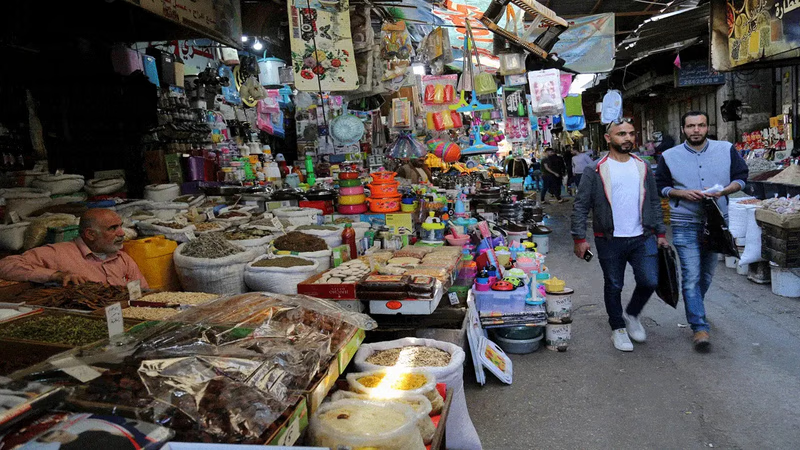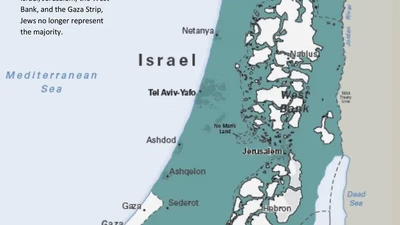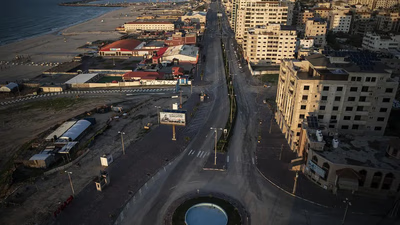
Palestinian agricultural goods in a B2B marketplace.
Palestine receives substantial financial aid from international donors, including governments and international organizations. This aid is crucial for supporting the Palestinian Authority and funding public services and development projects. Trade is restricted due to political factors, but Palestine does engage in some export activities. Palestinian products, such as agricultural goods and traditional crafts, are exported to regional and international markets. The Palestinian economy faces several challenges, including restrictions by Israel on trade, movement, and access, recurrent hostilities, internal divide, and falling aid inflows.
Following the 2006 legislative election in which Hamas won, Israel handed over $ 55 million in taxes stopped; It does not have access points (port, airport, etc.) to collect taxes, Israel did. These funds make up one-third of the budget. Two-thirds of it is the main budget and support for the salaries of 160,000 civil servants (among whom there are 60,000 security forces and police), a budget that one-third of the Palestinian people are deprived of. Israel also decided to impose its controls on checkpoints, which since the beginning of the Second Intifada have been a major factor in the 2002-2001 economic crisis, which the World Bank compared to the 1929 economic crisis. In addition, the United States and the European Union have provided direct assistance.
Meanwhile, the United States has blocked the economic activities of banks and obstructing the payment of some auxiliary funds of the Arab League (for example, Saudi Arabia and Qatar) to the accounts. On May 6 and 7, 2006, hundreds of Palestinians in Gaza and the West Bank demonstrated to demand payment. With the increase of \"economic pressure\" on the foundation, tensions between Hamas and Fatah are rising. Due to the special situation of the disputed areas, the Palestinian Authority (PA) had received unparalleled financial support from the international community. According to the World Bank, $ 929 million was raised by the international community in 2001. This amount was $ 891 million in 2001 and $ 1,100 million in 2005 (equivalent to 53% of the total budget in 2005).
The main purpose of these grants was budget support, promotion aid, and public health. In 2003, the United States raised $ 224 million, the European Union $ 187 million, the Arab League $ 124 million, Norway $ 53 million, the World Bank $ 50 million, the United Kingdom $ 43 million, Italy $ 40 million, and the remaining $ 170 million were paid by other countries. According to the World Bank, the budget deficit in 2005 was about $ 800 million, about half of which was provided by sponsors. The report also states that the financial situation of PA. It had become increasingly unstable, largely due to uncontrolled government spending, especially the high growth of government employee payroll, the expansion of public transportation schemes, and the expansion of the credit network.
Palestine does not have a de jure currency. Currencies generally used in Palestine include the Israeli new shekel (ILS), Jordanian dinar (JOD), United States dollar (USD), and Egyptian pound (EGP). The GDP was estimated to be $10 billion in 2012. The GDP growth rate was 1.2% in 2017, 0.9% in 2018, -2.5% in 2019, and 2.1% in 2020. The GDP by sector is divided into agriculture (5.5%), industry (23.4%), and services (71.1%) as per 2014 UN data. The unemployment rate was 27.5% in Q1 2013. Israeli occupation in Palestinian territories has placed severe limitations on the success of Palestinian economic policies. According to a World Bank report, Palestinian economic growth is expected to soften in 2023.
-

Palestine, with over 4. 2 million residents in the West Bank and 1. 2 million in the Gaza Strip, faces significant economic challenges due to ongoing occupation. The gross domestic product (GDP) of Palestine is approximately $8 billion, ranking it 157th globally, with a growth rate of about 6%. However, this growth is largely driven by the West Bank, while the Gaza Strip"s economy has suffered considerably. The industrial sector in Gaza primarily consists of family-run businesses producing textiles and crafts. Economic output in Gaza declined sharply between 1992 and 1996 due to border closures imposed by Israel, which disrupted established trade relations and led to rising unemployment. Although there was a brief recovery from 1998 until the onset of the Al-Aqsa Intifada in late 2000, subsequent military actions and restrictions severely hampered trade and labor movements.
By 2001, GDP per capita plummeted by 35%, with around 60% of Gaza"s population living below the poverty line. The political landscape further complicates economic recovery efforts as restrictions on work permits for Palestinian workers persist.
-

Palestine"s economy is heavily reliant on international financial aid, which supports the Palestinian Authority and public services. Despite political restrictions impacting trade, Palestine exports agricultural products and crafts to regional markets. The economy faces significant challenges, including Israeli trade restrictions, recurrent hostilities, and internal political divides. Following the 2006 elections, financial aid from international donors has been crucial, with the U. S. and EU providing substantial support. However, economic pressures have led to rising tensions between political factions like Hamas and Fatah. The Palestinian Authority"s budget is largely dependent on external funding, with a notable deficit exacerbated by high government spending.
The GDP growth rate has fluctuated over recent years, reflecting ongoing economic instability due to occupation-related limitations. As of 2023, economic growth is expected to soften further.
-

The history of present-day Palestine is marked by a rich tapestry of civilizations, including Canaanites, Philistines, and various Islamic empires. The region became a significant trade crossroads, especially after the Arab Muslim conquest in the 7th century. The Ottoman Empire controlled Palestine for four centuries until its collapse post-World War I, leading to British mandate and the controversial Balfour Declaration of 1917. This declaration supported a Jewish homeland in Palestine, igniting tensions between Jewish immigrants and the Arab population. The UN"s 1947 partition plan aimed to resolve these tensions by creating separate Jewish and Arab states but was rejected by Arab leaders, leading to the 1948 Arab-Israeli War and significant displacement of Palestinians known as Nakba. Following Israel"s declaration of independence, territorial disputes intensified as Israel expanded beyond UN-designated borders. The Gaza Strip fell under Egyptian control while Jordan administered the West Bank. The Six-Day War in 1967 further complicated matters with Israeli occupation of these territories.
Since then, various peace efforts have sought a two-state solution, yet conflicts persist over borders and statehood aspirations. Present-day Palestine encompasses the West Bank and Gaza Strip, with its future status remaining uncertain amidst ongoing disputes.
-

Gaza, part of the Palestinian territories, primarily connects to the outside world through the Rafah Border Crossing with Egypt. Travelers should remain informed about the evolving political and security landscape, as conditions can change rapidly. Coordination with local authorities, such as the Palestinian Authority or United Nations agencies, is essential for guidance on travel routes and necessary documentation. Freight transport in Gaza is predominantly road-based and privatized, with a significant number of older vehicles in operation. The international trade for Palestinian areas has historically relied on Israeli seaports like Haifa and Ashdod, facing delays due to security checks. Plans for a Gaza Seaport have been hindered by Israeli opposition but include provisions for managing operations and security through a joint protocol. The Erez Border Crossing offers access to Israel and the West Bank but is subject to strict regulations. Alternatively, travelers can exit Gaza through Rafah into Egypt and then proceed to the West Bank via Jordan, which may involve various transportation methods.
-

Citrus fruits, strawberries, and flowers are key exports from the Gaza Strip, alongside olives, vegetables, meat, and dairy products. The region faces significant trade challenges due to ongoing sieges by Israel and Egypt, which restrict movement and access to essential goods. Imports primarily consist of food, consumer goods, and construction materials. The political landscape has shifted since the 2005 Israeli withdrawal, with Hamas gaining control in 2007. This has complicated trade relations further as Israel maintains control over Gaza"s airspace and waters. Environmental issues such as desertification and water resource management also impact agricultural productivity. Despite these challenges, Gaza"s temperate climate supports its agricultural sector. The region"s historical significance as part of the "cradle of humanity" adds to its cultural value but does not alleviate current economic hardships.
Efforts to reopen Yasser Arafat International Airport have stalled due to ongoing negotiations between Palestinian authorities and Israeli officials. "





